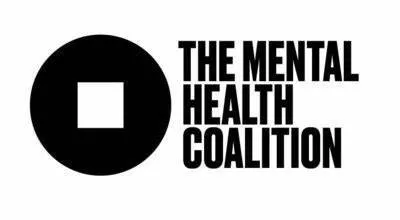Trauma

What is it?
Trauma is a reaction your brain and body can have to a stressful or tragic event. What triggers a traumatic response varies for everyone, which can make it hard to know if you’re experiencing the effects of trauma. It’s typically associated with physical or sexual assault, violence, or accidents, but can also involve repeated events like neglect.
Experiencing a stressful event doesn’t always result in trauma. And experiencing trauma does not always lead to long-lasting effects. About 1 in 3 people who experience trauma develop Posttraumatic Stress Disorder (PTSD)1, a mental health disorder that includes symptoms like avoidance and changes in arousal lasting a month or more.
It’s hard to deal with a wound that can’t be seen. You might experience strong emotions unexpectedly, trouble sleeping, or physical sensations like a fast heartbeat, seemingly without warning. But, like any other wound, it needs attention to heal.
Identifying the source of your trauma and how it impacts you is a challenging but important step. You may not feel like talking about it right away, and that’s OK. There are other ways to move forward that may be right for you.
What’s causing it?
There are many possible causes of trauma as well as ways to categorize them. Here’s a breakdown of the main types:
- Acute Trauma: This refers to trauma in reaction to a one-time, one-off event—for example: getting in a car crash, or unexpectedly losing someone you love.
- Chronic Trauma: This is trauma that develops in response to a dangerous situation that repeats over a longer period of time. This includes things like constant bullying, neglect, or any kind of ongoing abuse.
- Secondary Trauma: This is a reaction to witnessing other people’s hardships or acute trauma. It’s a kind of trauma that’s common for first responders, such as firefighters, EMTs, and social workers.
- Adverse Childhood Experiences (ACE): This refers to traumatic childhood events that can affect you later in life. Experiences like the loss of a parent, parental neglect, abuse or family conflict are common ACEs.
How trauma impacts the LGBTQ+ community
Stigma and discrimination are sources of trauma for many. For LGBTQ+ people, negative experiences with rejection, emotional harm, and physical violence simply because of who you are can leave a deep impact. Especially when the harm is somehow tied to your gender identity or sexuality, it can make you feel like you yourself are the problem, and not the person hurting you, even though this isn’t true.
Trauma related to your gender identity or sexuality can cause shame, the feeling that you are inherently bad because of who you are.
No one deserves to feel ashamed of themselves because they survived a traumatic experience. That’s why it’s so important to seek out mental health care that is trauma-informed and sensitive to your experiences and struggles.
How should I deal with it?
Sometimes we protect ourselves from the feelings associated with trauma by dissociation, feeling detached from reality, or intellectualization, focusing on facts over feelings. This can often help us in the moment, but in the long run can prevent us from truly coping.
Recognizing the effects of past trauma and exploring ways to work on it is one of the greatest and bravest forms of self-compassion. It can be challenging to find the time and energy to prioritize mental health, but the rewards for doing so are countless.
Things to try
-
Relaxing can help counter a fight-or-flight stress response. The 5-4-3-2-1 technique is one approach you can try. To do this, pause for a moment to take notice of your surroundings, Ask yourself a series of questions, counting down from 5: 5) What are 5 things you can see? 4) What are 4 things you can feel? 3) What are 3 things you can hear? 2) What are 2 things you can smell? 1) What is 1 thing you can taste? This method helps you focus on your body, and grounds you in the moment.Explore More
-
Spend some time with a pet
Pets can provide comfort, companionship, and more often than not, a laugh, when you need it most. Science also backs up the benefits of having a pet on your mental health. Spend some time playing with your pet and enjoying each other company. If you don’t have a pet but love animals, consider volunteering at a shelter or visiting a neighbor or a friend with a pet.Explore More -
Try journaling
Write about how you’re feeling—not only what makes you happy, but also what triggers stress or pain. Experiencing a range of emotions helps regulate stress response, which can mean a healthier immune system. Journaling can also help you take action—you can identify things you want to do more or less of, identify situations you want to change or get help with, and figure out ways to deal with stress in the moment if you know what situations to look out for. While it is tempting to just use your computer, it can be more beneficial to go back to the old pen and paper. The good news is, you only need to journal a few times a week, for 10-20 minutes to get benefit.Explore More
What can I do now?
- Online directoryFindTreatment.gov
- Online interactive tool(s)Roadmap to Trauma & PTSD | The Mental Health Coalition
-
Online interactive tool(s)Where to get help | Mental Health America
Citations
- National Health Service UK. Causes - Post-traumatic stress disorder




